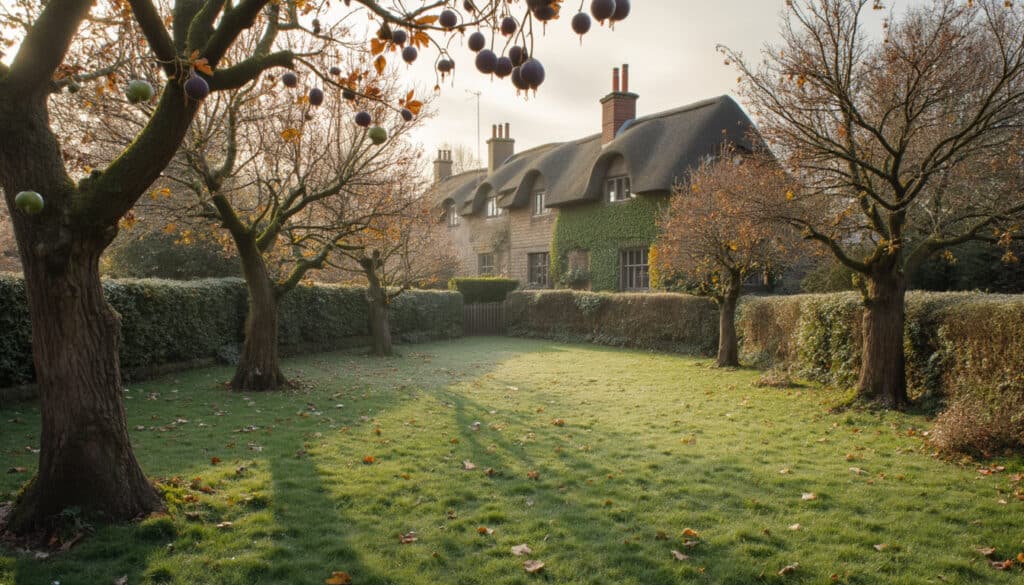The fig trees and almond trees are experiencing a new prosperity in the United Kingdom, an unexpected phenomenon arising from the mitigation of harsh winter conditions. According to the Royal Horticultural Society (RHS), the decrease in frosts has allowed these plants, more accustomed to warm climates, to thrive in British gardens. In these times of climatic upheaval, the behavior of plants offers a fascinating insight into the changes at work in our environment.
The fig trees and almond trees are seeing significant growth in the United Kingdom due to the decreasing frequency of frosts, according to the Royal Horticultural Society (RHS). With milder winters, these plants from warmer climates are perfectly adapting to British gardens. In Wisley, Surrey, Mediterranean almond trees were planted several years ago and bore fruit for the first time this year, without frost. Fig trees, although typically not suited to the humid climate of the UK, are thriving at Hyde Hall in Essex. This trend emphasizes the importance of adopting drought-resistant plants while considering the increasing climate uncertainties in the country.

Fig trees and almond trees: Mediterranean climates in the UK
Trees such as the fig tree and the almond tree, usually associated with Mediterranean climates, are adapting to unexpected regions like the UK. The Royal Horticultural Society (RHS) has observed that milder winter temperatures, with fewer frosts, facilitate their growth, opening new possibilities for biodiversity.
In gardens like Wisley in Surrey, Mediterranean almond trees have been successfully planted, fully fruiting for the first time without the impact of severe frost. This trend reflects a notable change caused by climate modification that allows these trees to thrive in environments historically unsuitable for their needs. Learn more about how to protect and maintain these trees in the long term on the Gamm Vert website.
Plant adaptation to new climatic conditions
With the reduction in the number of frost days, a greater diversity of plants is now feasible. This phenomenon draws particular attention to certain drought-resistant plants like the fig tree. Fig trees introduced for the first time at Hyde Hall, Essex, demonstrate resilience to dry periods, traditionally considered too humid for the British climate. This article from Willemse France highlights the adaptation of fig trees to these conditions.
Sustainable water management in RHS gardens
RHS gardeners are implementing innovative strategies to manage excessive water in the gardens, as demonstrated at Harlow Carr, Harrogate. The installation of attenuation ponds as well as leaky barriers helps to moderate water flow to restrict flooding. These measures demonstrate a proactive response to the increasingly frequent extreme weather conditions.
Articles similaires
Thank you!
We will contact you soon.














